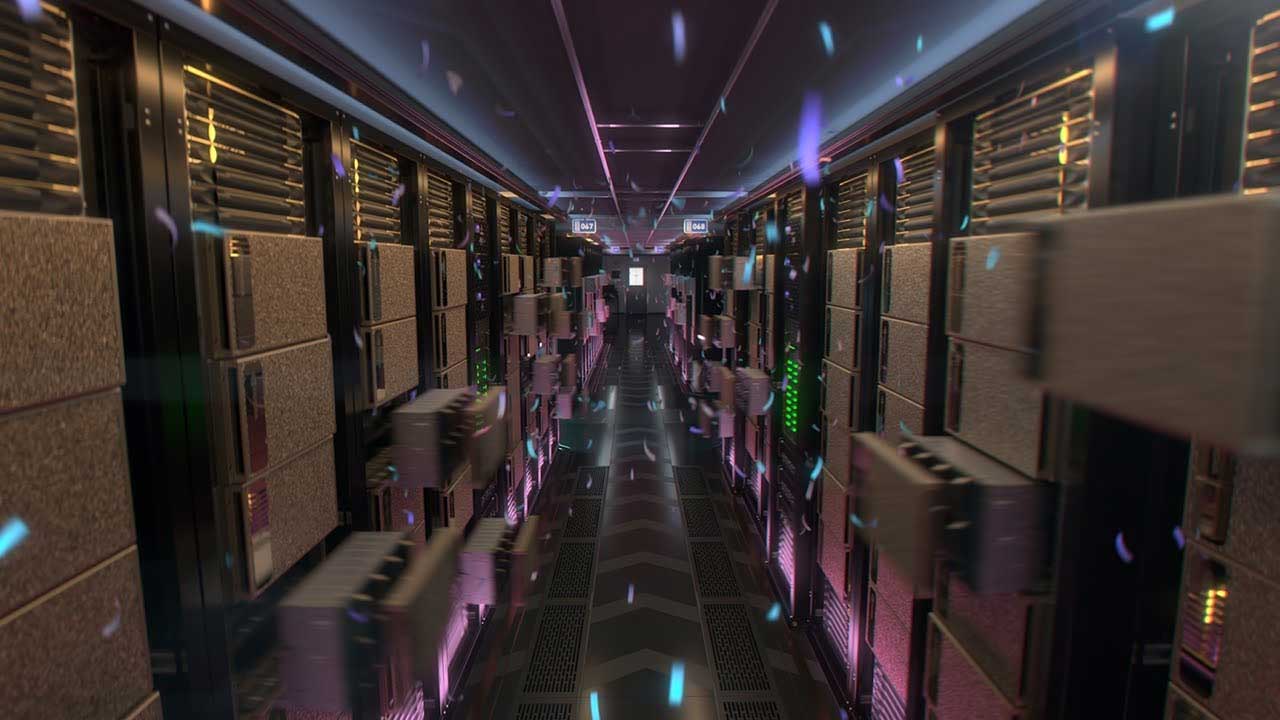Nvidia's AI customers are scared to be seen courting other AI chipmakers for fear of retaliatory shipment delays, says rival firm
Green team suspected of delaying orders for customers caught ‘in flagrante’ with rivals.

A report published by the Wall Street Journal on Monday surfaces an accusation that Nvidia might be willing to delay data center GPU orders if it becomes aware of a customer looking for greener pastures. Thus, rival AI chipmaker Groq says that fearful customers are secretive about acquiring or designing AI acceleration technology for fear of retaliatory shipment delays. This stands in contrast to Nvidia's own statements on the matter, with the company saying that it is trying to allocate supply fairly and to offer customers alternative access to compute while they wait for their shipments.
It would be a pity if something were to happen to your pending GPU order...
Fear of being found out is so strong that it isn’t uncommon for people to deny they have had meetings with rival AI accelerator chip firms, Jonathan Ross, CEO of rival chip startup Groq, told the WSJ.
“A lot of people that we meet with say that if Nvidia were to hear that we were meeting, they would disavow it,” Ross told the WSJ. “The problem is you have to pay Nvidia a year in advance, and you may get your hardware in a year, or it may take longer, and it’s, ‘Aw shucks, you’re buying from someone else, and I guess it’s going to take a little longer.’”
If true, this revelation has echoes of Intel using strong-arm tactics in the early noughties to disincentivize PC-making partners from offering AMD-inside systems. Elsewhere in the WSJ report, it's made clear that Nvidia is enjoying its dominance of the booming AI market, with an estimated 80% of companies using AI acceleration reliant upon the green team's hardware.

We aren’t competitors, honest
The WSJ report even seems to hint that tech goliaths like Microsoft, Google, and Amazon are making their own AI accelerators, yet insisting they aren’t planning to become Nvidia competitors.
In contrast to the statement from Ross, Nvidia CEO Jensen Huang is reported to have told an analyst that he tries to be fair in allocating GPUs to companies and will avoid selling to companies that won’t immediately use the accelerators.
Huang also indicated that he will introduce GPU customers to cloud providers to tide them over as they wait for GPU orders to be fulfilled. Incidentally, Nvidia invested heavily into a cloud company called CoreWeave, which operates large data centers stuffed with a significant fleet of Nvidia GPUs and rents out computing power.
Groq clearly isn't a disinterested third party observing all of this from afar. Quite the opposite in fact. And Nvidia is undoubtedly the 800 pound gorilla of the AI world right now. What isn't clear is whether there's any proof of malfeasance on the part of Nvidia, or whether anyone would dare to come forward with said proof if it exists.
Get Tom's Hardware's best news and in-depth reviews, straight to your inbox.

Mark Tyson is a news editor at Tom's Hardware. He enjoys covering the full breadth of PC tech; from business and semiconductor design to products approaching the edge of reason.
-
peachpuff ReplyFear of being found out is so strong that it isn’t uncommon for people to deny they have had meetings with rival AI accelerator chip firms, Jonathan Ross, CEO of rival chip startup Groq, told the WSJ.
Stay classy Jensen 🧐 -
MatheusNRei Reply
I think we're well past maybe by this point.g-unit1111 said:I feel like Jensen may be going mad with power here.
But then again, anti-competitive practices are nothing new to NVIDIA or most larger companies for that matter. -
Stevemeister There are things called anti-trust laws to stop this type of thing and running afoul of anti-trust laws can get very expensiveReply -
MatheusNRei Reply
The problem would be proving that this is indeed happening.Stevemeister said:There are things called anti-trust laws to stop this type of thing and running afoul of anti-trust laws can get very expensive -
atomicWAR Sadly I am anything but surprised. Jensen has been tightening his grip on the market while losing touch with reality all at the same time. I get Nvidia is an AI company but gamers made them. And we get rewarded with skyrocketing msrp prices (thanks pandemic for showing him the way), minimal performance gains in the low to mid range skus, crippled buses, low VRAM, etc etc. We need better competition in the AI and gaming markets, so of course Nvidia (cough Jensen cough cough) will do everything in their power to ensure that does not happen.Reply -
digitalgriffin If true, this would fall under RICO racketering and Anti Trust laws in the USAReply
Racketerring includes Coercion
Coercion involves compelling a party to act in an involuntary manner by the use of threats, including threats to use force against that party. It involves a set of forceful actions which violate the free will of an individual in order to induce a desired response. These actions may include extortion, blackmail, or even torture and sexual assault.
Remember when 3dfx was the evil company for suing nvidia? I'm begining to miss them. -
digitalgriffin Reply
He better pray he doesn't have a disgruntled employee who has access to sales schedules. Anti Trust Whistle Blower protection laws was passed by congress in 2020. And RICO violations can have monetary rewards.MatheusNRei said:The problem would be proving that this is indeed happening.
https://www.zuckermanlaw.com/antitrust_whistleblower_protection_lawyers/ -
g-unit1111 Reply
zoZRdnHeeYgView: https://www.youtube.com/watch?v=zoZRdnHeeYgMatheusNRei said:I think we're well past maybe by this point.
But then again, anti-competitive practices are nothing new to NVIDIA or most larger companies for that matter. -
UnforcedERROR Reply
Leather jackets can do that to a man, and Jensen has more than a few.g-unit1111 said:I feel like Jensen may be going mad with power here.
Would this be applicable if you know a company may be less responsive to you though? I would imagine threats indicate specific levels of communication, either direct or implied. This sounds like it wouldn't entirely fall under that definition, because it may not be said, it just happens.digitalgriffin said:If true, this would fall under RICO racketering and Anti Trust laws in the USA
Racketerring includes Coercion
Coercion involves compelling a party to act in an involuntary manner by the use of threats, including threats to use force against that party. It involves a set of forceful actions which violate the free will of an individual in order to induce a desired response. These actions may include extortion, blackmail, or even torture and sexual assault.
Remember when 3dfx was the evil company for suing nvidia? I'm begining to miss them.
I don't know enough about the legality there, and I don't want to assume.